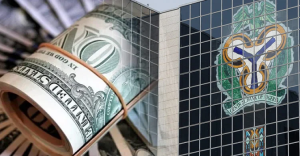
The Central Bank of Nigeria (CBN) has officially clarified that it has no intention to convert $30 billion worth of domiciliary deposits into the local currency, Naira. This statement comes as a response to recent reports in certain media outlets suggesting that the Federal Government and the CBN were contemplating such a conversion in order to stabilize Nigeria’s currency.
During the past week, the Naira experienced its weakest performance in history, causing concerns within the Nigerian economy. However, the CBN has categorically dismissed these reports as “fake news” in a blog post released on February 3, 2024. The Bank has urged the public to disregard such unfounded speculations.
Earlier this week, the CBN directed Deposit Money Banks (DMBs) to sell off any excess stock of US Dollars by February 1, 2024, as part of efforts to stabilize the volatile exchange rate and combat high inflation in the country. In a circular titled “Harmonization of Reporting Requirements on Foreign Currency Exposures of Banks,” issued on January 31, 2024, the banking sector regulator warned domestic lenders against hoarding excessive foreign currencies for profit.
The CBN expressed concerns over the growing trend of banks holding significant foreign currency positions and cautioned against reporting false exchange rates. It accused banks of maintaining surplus foreign exchange positions and mandated them to sell off excess Dollars in their possession by the deadline.
The circular also introduced prudential requirements that banks must adhere to, with a particular focus on managing the Net Open Position (NOP). This metric measures the disparity between a bank’s foreign currency assets and its foreign currency liabilities. The CBN specified that the NOP should not exceed 20 percent short or 0 percent long of the bank’s shareholders’ funds.
The CBN has clarified that the conversion of $30 billion domiciliary deposits to Naira is not part of its plans. The Bank remains committed to implementing measures aimed at stabilizing Nigeria’s currency and ensuring the proper management of foreign currency exposures in the banking sector.

